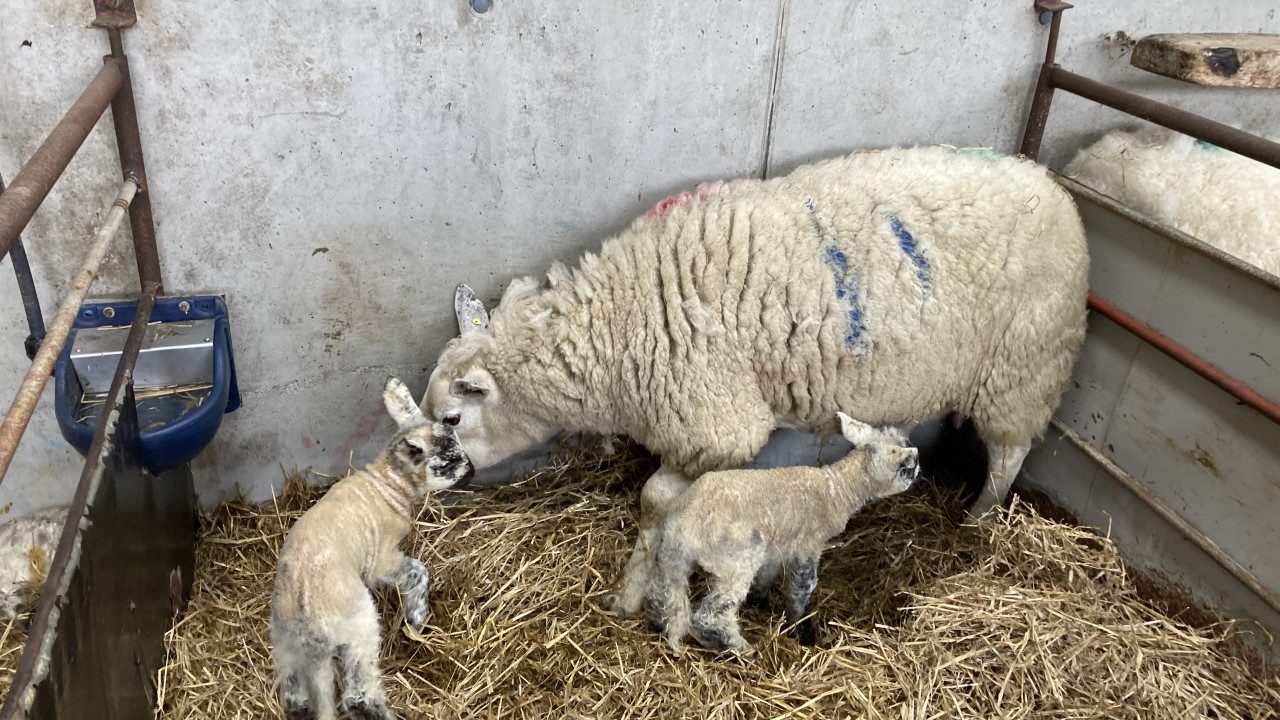Almost 50% of total lamb losses occur in the first 48 hours of life, with a further 11% coming to an early demise shortly thereafter.
Reports also show that estimates of pre-weaning mortality range from 10-28% and that most of the mortality is in the first three days of life, across different breeds and production systems.
Deaths at or around birth can lead to the loss of up to 15% of lambs born in lowland flocks and up to 25% of lambs born in hill flocks.
Given this backdrop, a Dublin-based veterinary consultant has highlighted the importance of getting sufficient colostrum into lambs, as soon after birth as possible.
“Newborn lambs require 10% of their body weight in colostrum within the first 24 hours of life, confirmed Dr. Barragry.
“The young lamb is born deficient in antibodies and immune-protection, and hence is wide open to infection and disease.
“The lamb is totally dependent on colostrum from the ewe as its primary source of passive protection via antibodies.”
Quality of colostrum for the lamb
“Adequate quality and quantity of ewe colostrum is, thus, essential for the lamb’s survival,” Dr. Barragry continued.
“The quality of the ewe’s colostrum and immunoglobulins can be adversely affected by stress, nutrition, weather, housing, trace element and disease conditions.”
According to Barragry, the quantity of colostrum intake for the suckling lamb can be a problem in many cases with failure to suck being a major issue.
Moreover, twin and triplet lambs are most likely to suffer from lack of colostrum because of competition, especially in the case of the last born triplet.
“It has been estimated as many as one in five lamb deaths may have occurred because of an unhygienic environment and E.coli infection pressure,” Dr. Barragry added.
“Newborn lambs have a very permeable gut lining. In addition, slow gut movements during the first day of life give ingested bacteria more time to establish and multiply.
“The main problem in newborn lambs is lack of colostrum and infection with E.coli from the dirty fleece of the ewe or the environment.”
In cases of ewes having insufficient quantities of their own beestings, Barragry recommends the feeding of proven colostrum concentrate.
“It is recommended to use one that is highly supplemented with a combination of protective antibodies, including immunoglobulin Y egg antibodies and colostral immunoglobulin G antibodies,” he said.
“It is also beneficial if the colostrum concentrate contains probiotics, energy, and vitamins. Thus, in terms of immunity protection, it provides three-pronged cover.”
